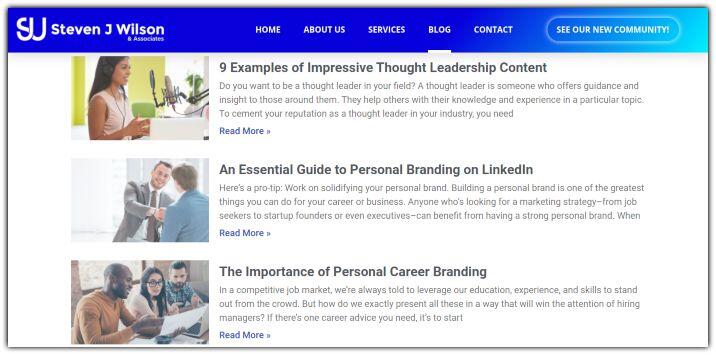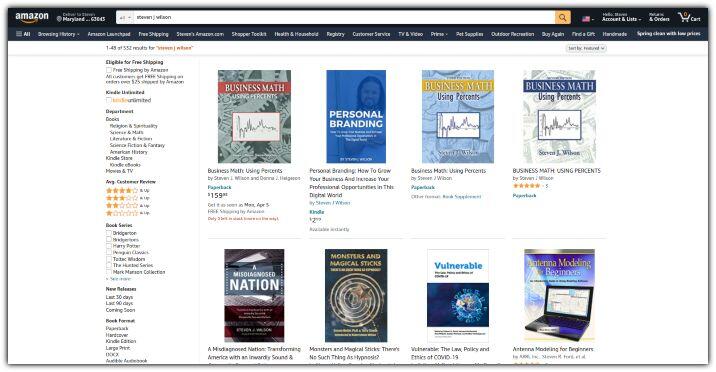There was once a time when marketing was meant for selling products and services only.
Now, marketing has evolved into a more sophisticated tactic that can also be applied even to yourself.
Whether you want to attract new clients for your business or get the attention of employers to land a new job, marketing yourself is now an essential skill that can make the difference between failure and success.
That said, it is crucial to learn how to market yourself if you want to succeed in a competitive world.
In this guide, we’ll talk in detail about what it means to market yourself. Find out why you should be strategic about selling yourself on social media and how this tactic can benefit your business or career.
Most importantly, learn effective ways to market yourself online as well as the common pitfalls you should avoid when promoting yourself.
What Does It Mean to Market Yourself?
“To market yourself” means to present yourself in the best light to clients, customers, and employers.
For career seekers, it is vital that you know how to show employers you are a good fit for a job.
Sometimes, the person who gets a job may not be the most skilled. They may have been good at creating a strong personal brand that makes them the “expert” in the eyes of hiring managers.
The same holds true in the business setting. Founders, owners, and executives today are keen on building an effective personal brand to compete with other companies in the field.
By showing they are experts in their crafts, they build credibility to the public, thus winning the trust of paying customers.
Hence, to market yourself means to build trust by positioning yourself as the go-to expert in your field, which is the main principle of personal branding.
Drawing the Line
To further understand what to market yourself means, you also have to know what it doesn’t mean. Marketing yourself isn’t:
- Overselling yourself
- Talking about your skills, products, or services all day
- Desperately trying to make sales
From the points above, we can start to identify what to market yourself truly means. Marketing yourself is:
- Being informational, educational, and helpful
- Demonstrating your expertise that can help the hiring company, your prospective clients, or potential customers
- Positioning yourself as the go-to expert in your field
Remember these points to successfully promote yourself online.
The Competitive Advantage of Marketing Yourself
Everyone can benefit from marketing themselves, even if your business or career has absolutely nothing to do with marketing. When you know how to promote yourself on social media, you can:
Develop credibility and trust

Marketing yourself is all about building your authority. You demonstrate your knowledge and share your experiences to be seen as an expert in the field.
When you show people that you are an expert, they are naturally drawn to you.
They will depend on you more, and ultimately, they will reward you with their trust.
Attract potential clients, customers, and hiring managers
When you market yourself, you are reaching more people.
When more people can see you, chances are, there will be individuals who will be interested in you.
Done right, marketing yourself can lead to people hiring you, buying from you, or availing your services.
Gain recommendations
Did you know that by simply doing good with your work, you are marketing yourself?
The good news is that it can be a powerful marketing tool that can spread the word about you. Imagine if you’re consciously shaping the perception of people around you of how good and helpful you are to them, you can have people recommending you.
This word-of-mouth tactic is especially effective on social media where shares, retweets, and comments can reach more people.
Build your network
Exposing yourself to a wider audience helps you forge real connections.
This opens up opportunities to create a network that can help achieve your marketing goals.
Whether it be potential partnerships with fellow experts to grow your business or connecting to the right people in your dream company, marketing yourself can help build valuable networks.
Grow your career or business
In a competitive market, knowing how to promote yourself on social media can be a key to achieving success.
It helps you position yourself as an expert that your clients, customers, and employers need. This earns you valuable trust, and by marketing yourself, you are setting yourself apart from the crowd.
Eventually, you’ll have potential clients and hiring managers coming to you seeking your expertise, and that means business.
How to Market Yourself Online: Getting Started
Whether you’re an entrepreneur or a job seeker, marketing yourself online can be the key to your success.
The great part is that you can promote yourself without spending money to get started. Here, learn how you can start marketing yourself on social media.
1. Figure out who you are
To market yourself effectively, first, you need to know who you are.
By knowing yourself, we mean finding out your strengths as a professional.
- Where do you excel at?
- What are you passionate about?
- What motivates you?
- What are your experiences related to your niche?
The answer to these questions will become your unique selling proposition (USP).
It’s crucial to understand what you are selling to market yourself effectively.
Thus, think about how you can bring these elements together that you can present when you start marketing yourself.
Once you have identified your strengths, it’s time to determine who you want to be.
Many individuals struggle to market themselves because they don’t want to limit themselves.
For instance, a startup founder of a digital marketing agency wants to market himself as the go-to expert in the community.
But, digital marketing is a complex process that involves many disciplines, such as SEO, social media marketing, and email marketing.
To effectively promote yourself, choose a certain area you’d like to focus on. In the above example, you can’t be an expert in all of these marketing disciplines because it’s too broad.
It’s unrealistic, and that makes it harder to appeal to a specific audience.
Therefore, concentrate on a certain aspect of your craft and start from there.
Listing your current skills, passions, and experiences will help you identify the area you should focus on in your marketing efforts.
2. Define your audience
Once you figure out who you are, the next step is to identify who your audience is.
Who are you trying to reach? Are you marketing yourself to potential clients? Do you want to connect with future customers? Or are you trying to reach hiring managers and recruiters?
Determine a specific audience you want to target.
To do this, look at your skills, products, or services. What problems do they solve?
From there, ask yourself who would benefit the most from what you offer.
After you get a general idea of who your target is, do as much research as possible about them. For entrepreneurs, understand your audience’s pain points, their wants, needs, and their concerns.
For job seekers, learn about the company you’re trying to reach, specifically the skills, values, and knowledge, and experience that they value the most.
Defining your audience is a crucial step in marketing because it will guide your content-making process.
If you know your audience, you’ll know who will read your content.
This way, you can tailor-fit your posts to a specific set of people.
By deeply understanding your audience, you can create more focused content that can resonate with them.
3. Develop your personal brand statement
Say, you’re in an elevator together with a prospect.
You only have a minute to talk about yourself. How would you market yourself?
This is where a personal brand statement comes in.
A personal brand statement sums up who you are, what value you provide, who would benefit from your offer, and how you deliver.
It’s important to develop a statement that can clearly convey your message.
It’s one of the first things people will learn about you, so your statement should stick with them.
Here’s an example of what a personal brand statement looks like:
“I help executives build their personal brands to attract more quality clients and investors.”
Your statement should contain the value you offer, your target audience, and your USP.
To start, follow the classic formula for writing a brand statement:
“I help ____ do ____.”
The first blank should be your target audience. The second blank is the desired result or outcome of your audience after working with you.
In the example above, the target is executives. The desired result is to attract more quality clients and investors by building their personal brands.
Keep your statement clear and concise, about one to two sentences short. Also, make sure to keep it conversational, memorable, and genuine.
4. Create a strong online presence
When you have identified your value, your audience, and your statement, it’s time to build your presence online.
If you already have a website, make sure to upgrade it to reflect your message. If you don’t have it, consider building one.
A website is a crucial digital marketing tool for building credibility and authority aside from providing accessibility and making the right first impression.
Then, use social media strategically.
There are various social media channels you can choose from. But if you’re looking to establish thought-leadership, make sure to have a presence on LinkedIn.
This platform is basically a living resume that offers a trove of information about you. It’s essential for communicating your value and connecting with the right people.
Once you have chosen your platforms, the next thing to do is to create and distribute your content.
Content is the meat of your marketing strategy. It is what will communicate your message and demonstrate your expertise.
When creating content, always ensure that they are:
- Informative
- Educational
- Helpful
- Original
- Actionable
- Accurate
- Engaging
- Thought-provoking
Marketing content comes in many forms, but the important thing is to provide value to your audience. Again, you should put yourself in the best light to your audience.
To do this, they should be able to see your value, and well-thought content that answers their problems can help you achieve this purpose.
However, don’t just create content and let people discover it. You should also actively distribute your content to reach more people. Email marketing is a great way to do this.
So, to build a strong online presence, make sure to optimize your website, social media accounts, and email with effective content that positions you as an expert in your industry.
6 Effective Ways to Market Yourself
Earlier, we defined “to market yourself” as building trust by positioning yourself as the go-to expert in your field.
And that’s what marketing yourself is all about: demonstrating your expertise to present yourself in the best light to the public.
That said, your marketing strategy should focus on communicating your knowledge to your audience. Here are some ways to do it:
Maintain a blog

Start writing your thoughts and share them on your blog. Blogging is a great way to demonstrate your expertise.
Whether you add a blog to your website or publish in off-site blogs like Business 2 Community, Medium, or LinkedIn, make it a habit to write articles about your industry.
It doesn’t have to be a long post every time, especially when you’re just starting out.
The goal is to be consistent in publishing content online, and that you write for a specific audience. This way, people will have a reason to follow your website or social media accounts.
Write a book

Aside from writing blogs, you’ll also benefit from authoring a book.
Look around and many of the thought-leaders in your field have already published at least one book.
Because it offers real value to people, books are a powerful marketing tool to demonstrate your knowledge about a subject matter. Hence, you should consider publishing one.
While writing a book can be daunting, it’s really worth the effort you put into it.
Besides, you don’t have to write a book by yourself if you don’t feel up for it. Instead, you can reach out to fellow experts in your industry and ask if you can co-author a book with them.
Speak publicly
Speaking in front of a large audience is a sure way to get your name out there.
By sharing your knowledge in conferences, trade shows, or webinars, you get to promote yourself while building your network and your reputation.
The good thing is that you don’t have to be a big name to get invited as a resource speaker in events. You can start small in the local chapter of your professional association.
But if you’re someone who gets stage fright, don’t worry. You can utilize digital speaking platforms like podcasting to work out your speaking skills.
So, practice enough, build your confidence, and aim for the bigger stage where you can market yourself.
Get quoted
Aside from speaking at events, it’s also a smart move to speak with the local media.
People will recognize you more if you appear in media interviews, reports, and features, aside from building your portfolio.
Reporters and journalists love quoting experts to back up their points.
Showing your expertise to attract the attention of journalists is great.
However, you have to actively look for reporters if you want to leverage this marketing tactic.
For this reason, sites like HARO and Source Bottle can be of help. These kinds of sites connect journalists with experts, allowing you to score an interview with various news outlets.
Lead or organize a group
If there is no professional association in your area, organize one.
Experts are always drawn to fellow experts, and organizing a group of professionals helps you build a valuable network. Connect with them and create a community of like-minded individuals.
If there is an existing group already, join them. Then, talk to the leaders about you wanting to help out.
Or better yet, express your willingness to be part of the leadership. Joining industry-related groups can significantly bolster your reputation.
Common Pitfalls of Marketing Yourself
Finally, avoid these common marketing pitfalls when promoting yourself online.
- Getting too broad with your niche. You need to be specific with the niche you’re claiming to be an expert in. Finding a specific niche helps you solidify your value and lock in on the right audience.
- Creating content for everybody. As they say, if your content is for everybody, it is for nobody. Create more focused content with a specific set of people in mind. This can make your content more appealing to your readers.
- Not doing research. You can’t answer your audience’s questions if you don’t do much research about your subject matter. Spend some time researching your niche and become a true expert that people can rely on.
- Don’t be self-absorbed. No one wants to listen to someone that talks about himself all the time. Instead of talking about me, me, me, focus on being helpful to your audience. Address their problems, wants, and needs, and be genuine about it.
- Not engaging with your audience. Always remember the “social” aspect of social media. When marketing yourself, don’t forget to engage with your audience. Reply to comments, ask for suggestions, and converse with fellow experts online. Marketing yourself on social media also means building a community.
Final Words
To market yourself, you should become an expert in your field. This goes true for entrepreneurs and job seekers alike.
Learning how to market yourself properly can make the difference between failing and succeeding in your goals.
So, be sure to consider the most effective ways to market yourself and avoid the common pitfalls of the task.





